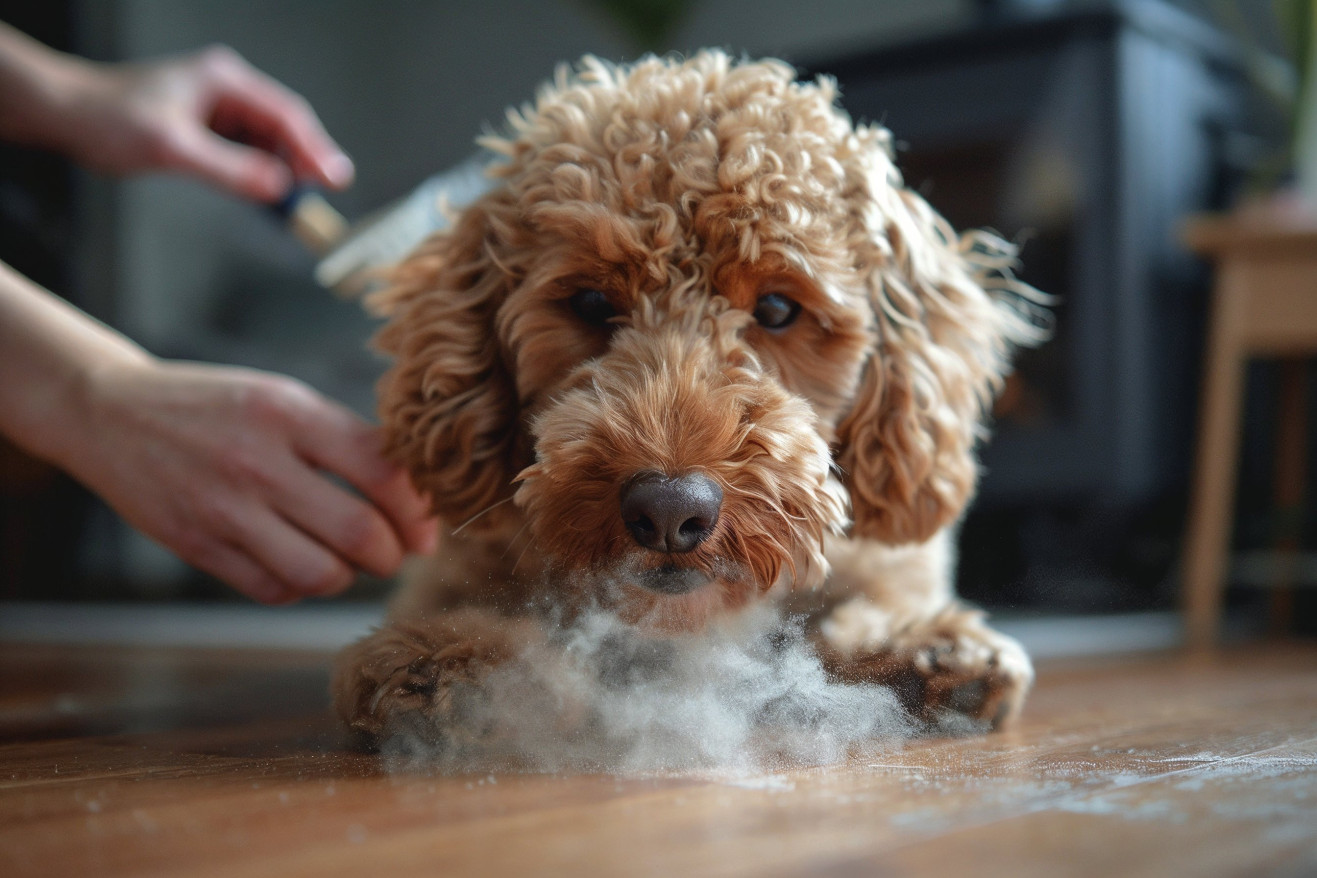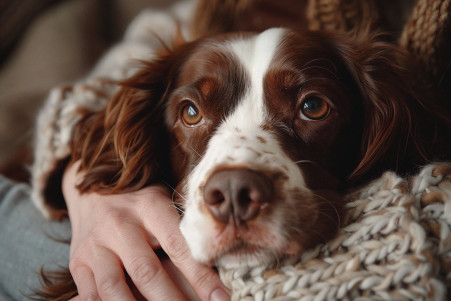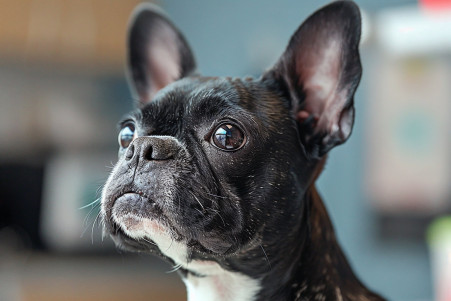Home Remedies for a Dog That Won't Stop Sneezing: Effective Solutions
11 June 2024 • Updated 11 June 2024

If your dog's constant sneezing is making you crazy, these home remedies may help your dog find some relief. Use a humidifier or vaporizer to increase the moisture in the air, which can help thin mucus and reduce nasal irritation. Saline nose drops or children's nasal spray can also help clear out irritants. Make sure your dog is drinking enough water, and vacuum your home regularly to reduce allergens.
While some of these remedies may offer short-term relief, we'll cover some natural home remedies that can help your dog's sneezing in the long term. This article will cover everything from dietary changes to environmental adjustments, and it's based on information from reputable veterinary sources. This way, you can find easy, holistic solutions to your dog's respiratory problems. The aim is to help your dog breathe better without the need for harsh medications or expensive trips to the vet.
What home remedies can help a dog that won't stop sneezing?
Environmental Changes That Can Help With Allergies
Allergies are the most common cause of chronic sneezing in dogs, and environmental irritants and allergens are the main cause. In addition to using a humidifier or vaporizer to add moisture to the air, which can help loosen mucus and soothe nasal passages, according to Rogue Pet Science, you can also help your dog by vacuuming and cleaning your home to reduce allergens like dust and dander, which are often the cause of sneezing, according to Joii Pet Care.
You can also help your dog by removing potential irritants like perfumes and air fresheners that can make allergies worse, according to The Vets. It's also important to keep your dog's bedding and other areas where they spend time clean to prevent allergens from building up and causing sneezing. By identifying and removing potential allergens from your dog's environment, you can create a safe, allergen-free space that will help your dog breathe easier and feel better.
While environmental changes can help, if your dog's sneezing is due to allergies, it may also be helpful to take a more holistic approach, such as adding natural supplements that can help manage allergies. However, making sure your dog's living space is clean and free of allergens is a good first step in helping them deal with their sneezing.
Herbal and Natural Supplements
There are also a number of herbal and natural supplements that can help with allergies and immune system support. This can be a great way to take a more well-rounded approach to your dog's sneezing. For example, North Hound Life explains that omega-3 fatty acids, probiotics, and quercetin are all anti-inflammatory and can help with allergy symptoms like skin rashes and itching.
Meanwhile, bee pollen, turkey tail mushroom, and bovine colostrum can help with desensitization and immune modulation, according to Dogs Naturally. And milk thistle and other herbs can help with liver support, which is important for processing and removing allergens, according to Petco.
These supplements can be given to your dog in their food or as treats, and they can be a great way to avoid the side effects of traditional allergy medications. By using these natural remedies, you can help your dog's allergies and respiratory issues without the use of chemicals.
Essential Oils for Respiratory Support
Essential oils can help dogs find relief from respiratory issues, including sneezing due to allergies or infections. Moksha Lifestyle Products explains that lavender, chamomile, and frankincense have anti-inflammatory and calming effects that can help with nasal irritation. Meanwhile, peppermint and eucalyptus can help with decongestion and open up the airways, according to Dogs Naturally.
Essential oils can be used in a diffuser or diluted and applied topically, but it's important to make sure that you're using them safely. doTERRA Essential Oils explains that you should always talk to a vet or certified aromatherapist before using essential oils on pets. Still, these natural remedies can help pet parents support their dogs' respiratory health and alleviate their allergies.
That said, pet parents should always make sure that they're keeping an eye on their dog's symptoms and that they're taking them to the vet if their symptoms don't improve or if they get worse. The next part of this article will discuss when you should take your dog to the vet for sneezing.
When to See a Vet
While the above home remedies can help with mild or occasional sneezing, Vetster notes that you should see a vet if your dog is sneezing excessively. This is especially true if the sneezing is accompanied by other symptoms like lethargy, loss of appetite, or difficulty breathing. The Dog People by Rover.com also points out that if your dog has bloody nasal discharge or nasal discharge that lasts longer than a few days, you should take them to the vet.
Dr. Phillips Animal Hospital adds that if your dog is sneezing and pawing at their nose or shaking their head, they may have a foreign object in their nose or a nasal tumor. If your dog's sneezing doesn't improve after a few days of at-home treatment, it's best to see a vet for a proper diagnosis and treatment.
Conclusion: A Holistic Approach to Respiratory Health
Dog sneezing can be a sign of many different problems, from allergies to more serious health issues. While home remedies can help with mild or occasional sneezing, they should not be used long-term if the problem doesn't go away or gets worse.
A holistic approach that includes changes to the dog's environment, supplements, and essential oils can help relieve symptoms and treat the causes of sneezing. However, it's important to keep an eye on a dog's symptoms and see a vet if home remedies aren't working or if there are other concerning symptoms. By learning about the causes of sneezing and trying safe, natural treatments, dog owners can help their pets stay healthy and happy.


